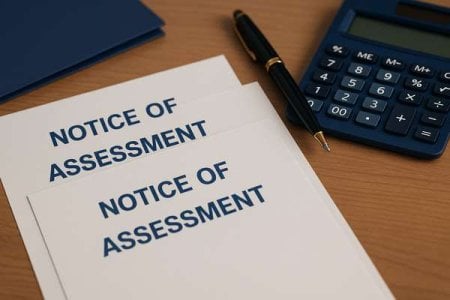From Swimwear to $58,000 Weddings: Inside the ATO’s Outrageous Tax Deduction Hall of Shame
- Replies 0
After 60-odd trips around the sun, you might think nothing about taxes could surprise you. Yet the Australian Taxation Office (ATO) continues to unearth deduction attempts so audacious they’d make a tax auditor do a double take. Just this week, the ATO went public with some of the most “outrageous” items Aussies tried (and failed) to claim on their tax returns.
It turns out a few creative taxpayers are treating the tax code like a suggestions box – slipping in everything from swimwear to air fryers and hoping for the best. It’s equal parts comedy and cautionary tale, and while we can chuckle at the cheek, there’s a serious message beneath the surface about tax compliance and fairness.
The Latest Tax Time Tall Tales (2024 Edition)
The 2024 tax season brought a fresh crop of eyebrow-raising deduction claims. According to the ATO’s latest revelations, not everyone “got the memo” that tax write-offs must be work-related expenses. Among the standout attempts from last year’s returns:- Gadgets Galore – Claimed by a Mechanic: One enterprising mechanic listed an air fryer, a microwave, two vacuum cleaners, a television, a gaming console and gaming accessories as “work-related” equipment. Nice try, but unless grease monkeys are frying chips and playing Xbox in the service bay, the ATO wasn’t buying it – the entire claim was denied.
- Swim Trunks for a Trucker: In another case, a long-haul truck driver attempted to deduct the cost of a pair of swimmers (yes, the man’s swim shorts). His rationale? It gets hot at some outback truck stops, so why not take a cooling dip during lunch breaks. Practical maybe, but definitely not tax-deductible. As an ATO official dryly noted, “while a lunchtime dip might clear your head for work, swimwear for a truck driver is clearly not deductible”. (One imagines the truckie’s face was as red as the Outback sun when that claim was tossed out.)
- Designer Wardrobe Write-off: Perhaps the boldest of the bunch was a fashion industry manager who tried to claim over $10,000 in luxury clothing and accessories – all in the name of looking sharp at work events. The catch: these were “conventional” clothes, not a uniform or protective gear, which makes them personal expenses and not eligible for any deduction. Nice suits or not, the taxman won’t subsidise your Gucci habit.
These examples were so beyond the pale that the Tax Office publicly labeled them “outrageous” and “wild”. ATO Assistant Commissioner Rob Thomson even issued a friendly reality check to would-be chancers: exaggerated deduction attempts will not be tolerated.
“While some people have tried their luck with unusual work-related deduction claims, most people realise that to be able to claim an expense, it needs to meet strict criteria,” Thomson said.
In other words, if your claim wouldn’t pass the common-sense “pub test”, don’t even think about putting it on your return. “If your deductions don’t pass the ‘pub test’, it’s highly unlikely your claim would meet the ATO’s strict criteria,” Thomson warned.
It’s worth noting that these denied claims were outliers among millions of honest tax returns. The vast majority of Australians do the right thing at tax time. But for those tempted to push their luck, the ATO’s stance is clear: personal purchases – whether an Xbox or a Speedo – are coming out of your own pocket, not the public’s.
To drive that point home, the Tax Office has made a habit of sharing these tales of creative accounting gone wrong. And as we’ll see, 2024’s cases are just the latest chapter in a much longer book of outlandish tax deduction attempts.
A Tradition of Outlandish Deductions: Greatest Hits from Years Past
Seasoned readers might be experiencing déjà vu. Haven’t we heard stories like this before? Indeed, we have. Australians trying to claim bizarre personal expenses on their tax is practically a tax time tradition, one that the ATO has been batting away for years.Let’s take a walk down memory lane and revisit some of the wildest deduction claims that have made headlines (and triggered ATO face-palming) in years past:
- The $58,000 “Work Conference” Wedding: Perhaps the most infamous attempt was a couple who tried to write off their entire $58,000 wedding reception as a work-related conference expense. (Yes, you read that right – their nuptials as a tax deduction!). The ATO initially caught a $4,000 reception claim and noted a prior case where the same enterprising groom had split a lavish overseas wedding between his and his bride’s tax returns. The total claim was $58k – and completely fraudulent. Not only was it disallowed, but in that extreme case one spouse was prosecuted for the attempt. It turns out “tying the knot” doesn’t entitle you to tie up the Tax Office in tall tales.
- “Cost of Raising Twins” (and Other Parenting Expenses): A number of parents have tried to offload the expenses of child-rearing onto the taxman. In one year, the ATO reported seeing claims for $20,000 labeled “raising twins” and even lines for the “cost of raising three children” and “newborn baby expenses”. Others tried deducting items like children’s sports equipment, sports club fees, school uniforms, and before-and-after-school care. As every parent knows, kids are expensive – but unfortunately (or fortunately for public coffers), the ATO doesn’t allow turning your grocery bills or daycare fees into tax breaks. All such family expenses were promptly denied as personal (non-deductible) costs. As the ATO dryly put it, those bills, “while often shocking to parents, are not deductible”. (Nice try, Mum and Dad.)
- Legos, Lattes and Private Luxuries: Think twice before claiming your kid’s Lego or your personal leisure as a “work expense.” One taxpayer actually tried to deduct the Lego sets they bought as gifts for their children. Unsurprisingly, that claim was axed – “personal gifts don’t qualify, and it’s not OK to ask Australian taxpayers to subsidise presents,” the ATO scolded at the time. In the same vein, some Aussies have attempted to claim everyday living costs – groceries, rent, mortgage payments, utility bills, even beer – as if surviving day-to-day were somehow a deductible hobby. (We all might wish the taxman would pick up our bar tab, but that fantasy doesn’t survive contact with reality.) The ATO has also rejected claims for private gambling losses and even the costs of a baby’s first birthday party, firmly reminding taxpayers that “everyday living expenses such as food, rent and mortgages” are never tax deductible.
- Cars, Gifts and Good Deeds (Still Not Deductible): The Australian love affair with cars has spilled into tax claims, too. “Many” taxpayers have tried to claim the full purchase price of their personal cars on their returns, the ATO reports. One particularly optimistic filer even claimed the cost of a brand new car he bought as a gift for his mother. A beautiful gesture, but nice guys don’t finish first in this case – a car given to Mum is still a private expense, not a work cost. “While the ATO appreciated the sentiment, unfortunately, we were required to disallow the claim,” an official said of that case. Similarly, gifts to others and charitable gestures out of your own wallet (unless to approved charities) won’t qualify as deductions. The taxman draws a firm line: you can’t turn your generosity into a tax write-off.
- “Looking Good” vs. Working Good: Appearances can be deceiving – and they’re also usually non-deductible. Over the years, people have tried to claim all manner of personal grooming and appearance-related costs. A classic example: a couple claimed thousands in dental cosmetic work, arguing that having a “nice smile was essential to finding a job” and therefore a valid expense. The ATO’s response? A polite chuckle and a denial – personal grooming, even for job interviews, is not tax-deductible. (Your pearly whites might land you the job, but you’ll pay for them with your own money.) Likewise, regular haircuts are out-of-pocket: one taxpayer infamously wanted the ATO to reimburse their monthly salon trims on the logic that their “hair grows during business hours”. Points for creativity, but no dice – the tax office will not be picking up your barber’s bill. Even high-priced fashion has been attempted beyond the 2024 case; over the years folks have tried deducting everything from fancy suits to designer handbags for that “professional image.” Unless it’s a uniform or protective gear, the ATO says clothing you can wear in everyday life is a personal expense – end of story.
And these are just a sampling! The unofficial Hall of Shame includes other gems like someone attempting to deduct the cost of their wedding reception (we’ve seen how that ended), and another claiming a hefty sum for “beer” – perhaps hoping the tax office would shout them a cold one. Spoiler: it didn’t. In the ATO’s own words, “we do see a whole host of weird and wonderful claims” during tax time, but virtually all of them get knocked back for not meeting the basic rule: Is it directly related to earning your income? If not, don’t even think about claiming it.
Pushing the Boundaries: Why Do Aussies Try It?
Reading these examples, you might be shaking your head in disbelief – or laughing out loud. (To be fair, the image of a truckie expensing his budgie smugglers does have a certain slapstick charm.) There’s an undeniable Aussie larrikin streak on display, a sense that some people are seeing what they can get away with – a “can’t blame me for trying” approach to tax returns. Indeed, some of these deductions smack of a classic “try it on and see what happens” mentality.But for all the humor, there’s a serious side to this. Tax deductions are not a game; when people overclaim, even by a little, it actually adds up to a lot of money out of the public coffers. The ATO has estimated an $8.7 billion tax gap for individuals not in business – essentially revenue lost largely due to errors and some deliberate overclaiming. Every dollar improperly claimed is a dollar less for essential community services like healthcare, pensions, and infrastructure. So these “creative” deductions aren’t just a private matter – if widespread, they cheat all of us by shrinking the pool of funds available for public good.
ATO officials have been keen to point out this broader impact. “If people overclaim – even just by a little bit – it all adds up,” warned Assistant Commissioner Karen Foat during a review of unusual claims, noting that the tax office “can’t turn a blind eye” to even small shenanigans. In plain terms: treating yourself to a new appliance and then pretending it’s for work isn’t a harmless fib – it’s asking every other taxpayer to subsidise your purchase. That’s why the ATO takes a firm line.
To its credit, the Tax Office does distinguish between honest mistakes and deliberate rorts. If you genuinely err – say, you thought something was claimable when it wasn’t – typically the worst that happens is the deduction is disallowed and your refund is adjusted. However, when people “deliberately [make] dishonest claims, particularly for large sums,” the ATO can hit them with penalties ranging from 25% to 75% of the shortfall, and in extreme cases even pursue prosecution. That wedding example shows the stakes: most outrageous claims don’t end in court, but push your luck far enough and you might find yourself in serious legal trouble, far worse than a slapped wrist.
So why do it at all? It appears to be a mix of optimism, ignorance, and audacity. Some folks genuinely don’t understand the tax rules and figure “Well, XYZ might be deductible, so I’ll throw it in and see.” Tax accountants report that a lot of dubious claims come from misconceptions – people who mistakenly believe, for example, that if something is even loosely related to their job, it’s fair game to deduct. (Spoiler: it still needs to be directly related and backed by records.)
Other cases, however, cross into the territory of willful exaggeration – essentially, gambling that the ATO won’t notice. For years, some taxpayers got away with padding a few extra expenses, especially before advanced data analytics. But those days are dwindling. The ATO now uses extensive data-matching and even comparisons to peers in similar jobs to sniff out claims that seem too high or out-of-place.
If you’re a teacher trying to deduct $5,000 in “home office” costs, and most teachers claim a few hundred, expect a please explain. And if you’re the one mechanic in Australia claiming a shopping list of kitchen gadgets, rest assured the system will flag it.
There’s also a bit of cultural candor to acknowledge: Australians have long had a tongue-in-cheek rivalry with the taxman. From the “cash economy” tradie who’ll do a job GST-free for cash, to the legend of Kerry Packer bluntly telling a parliamentary committee that he wasn’t going to pay a cent more tax than required (“because I don’t trust you blokes to spend it wisely”), there’s an undercurrent that minimising tax is a national sport. Most play within the rules – claiming legitimate deductions, which is absolutely fair. But the cases we’re exploring are those who slide into the realm of unethical (and illegal) exaggeration, trying to turn personal indulgences into business expenses.
The ATO’s tactic of publicly shaming these outrageous claims serves two purposes. First, it’s a gentle deterrent – a way to signal to would-be chancers, “Don’t even think about it; we’ve seen it all and you will get caught.” Second, it actually helps educate the ordinary taxpayer on the do’s and don’ts. By spotlighting the craziest incorrect claims, the ATO indirectly highlights what is allowed by contrast. (For instance, hearing that designer clothes or a home pool aren’t deductible might prompt someone to double-check the rules before claiming something similar.)
As taxpayers, many of us have probably paused before clicking “Submit” on our return, wondering if we’ve interpreted a rule correctly. These stories remind everyone to when in doubt, check the ATO’s guidance or ask a registered tax agent – a point the ATO reiterates often.
Tax experts outside the ATO have their own take. A recent survey of 180 tax professionals by Chartered Accountants ANZ revealed just how far some Australians are willing to stretch the truth for a refund. The respondents dished up stories that ranged from cheeky to outright preposterous.
To list just a few: one client tried to claim a luxury yacht as a work expense “because they might have some business to do on some islands,” and another attempted to deduct monthly hair salon bills on the logic that their “hair grows during business hours”. (Ten points for originality on that one, zero points for success.) There was also the case of a taxpayer who insisted their gym membership should be deductible since they “needed to be strong and fit to renovate their rental property”, and an office worker who bought an expensive Pilates reformer machine to help with a sore back – again expecting the tax system to foot the bill. Others tried to pass off major personal spending as work-related, including a family holiday to a tropical island (supposedly justified by a very creative link to their earthmoving business).
And let’s not forget the hopeful souls who tried claiming vet bills and pet food, a new swimming pool, private school fees, and even an engagement ring – none of which come close to qualifying as deductible for the average person.
Those tax agents surveyed lovingly referred to these attempts as “cheeky,” but were quick to add that such claims are strongly discouraged – the ATO, they stressed, “will not be laughing” along with you. In short, you might get a laugh at the BBQ telling your mates how you almost put Fido’s kibble on your tax return, but try it for real and the tax office will have the last laugh (and possibly your dollars).
Balancing Laughter and Lessons
It’s hard not to be amused by the sheer audacity of some of these claims. They shine a light on the great Australian knack for lateral thinking – unfortunately misapplied to the realm of taxes. In an editorial such as this, aimed at those of us with a few decades of life experience, the temptation is to either scold or snicker. In truth, a bit of both is appropriate.On one hand, humour is a perfectly valid reaction. After all, who among us doesn’t crack a grin at the thought of someone trying to slip a $30,000 cosmetic dental makeover past the taxman? (Yes, that really happened – a real estate agent wanted to deduct his new veneers as a work expense to “improve his smile” for clients.) Or the mental image of an ATO auditor reading a deduction line for “dog food – security purposes”? These anecdotes have the flavor of pub trivia or a comedy sketch, and sharing them has an almost folk-tale quality: cautionary fables for the modern age, where the trickster gets a comeuppance.
On the other hand, there’s a message here that verges on moral. Tax time isn’t just a dry process – it’s part of the social contract. We all chip in our bit (and yes, claim what we’re legally entitled to) so that the system is fair and can fund the services everyone uses. When a minority tries to rort the system by claiming personal luxuries, it undermines that fairness. It also can create resentment: why should one person get away with claiming a holiday or a high-end blender as a “work expense” when the rest of us cannot? It’s similar to the feeling people get seeing a celebrity or politician dodge their taxes through exotic loopholes – it doesn’t sit right.
In Australia, we pride ourselves on giving everyone a “fair go,” and that cuts both ways: we expect a fair shake from the tax system, and the tax system expects us to be fair and honest in return.
The ATO’s yearly reveal of dodgy deductions is a bit of a circus, sure – a chance for newspapers (and admittedly, editorials like this) to roll out some wry jokes and for readers to be entertained. But it also performs that essential civic function of drawing a line: laughing with the public at the absurdity of some claims, while reminding us all where the boundary of acceptable behavior lies.
As Assistant Commissioner Thomson put it, work expenses need to have a “close connection” to earning your income and you should be able to back them up with receipts. In practice, that means your deduction list should make sense to the average person in your occupation. A good rule of thumb: if you’d feel embarrassed trying to justify an expense to a tax auditor (or to a mate at the pub), then it probably doesn’t belong on your return.
For Australians over 60, many of whom have filed decades’ worth of tax returns, these stories might provoke a knowing smile. You’ve seen tax fads come and go, watched as the forms went from paper to online, and observed how the ATO’s scrutiny has evolved. You might even recall a time when claiming a few extra dollars here or there was easier, or when record-keeping was laxer (remember the “shoebox full of receipts” approach?).
But times have changed. The ATO today is armed with data analytics and a sharper focus on compliance areas – like work-related expenses, home office claims, and side-hustle income – that tend to produce frequent errors or temptations. In fact, this year the tax office specifically put work expenses and ‘side gigs’ under the microscope, precisely because of past patterns of overclaiming.
For retirees and seniors, this might mean your children or grandkids are navigating new tax terrain with gig economy jobs and flexible working arrangements. The best advice you could pass on to them is the timeless wisdom: “If it sounds too good (or too silly) to be true, it probably is.” No, the ATO won’t let you claim your Netflix subscription just because you once watched a work-related documentary, and no, you can’t depreciate your barista-grade coffee machine simply because you caffeinate for work.
At its core, this all boils down to ethics and responsibility. Filing a tax return is one of those interactions we all have with our government, and it relies on an honor system backed by verification. The honor system is most visible in the deduction section – we tell the taxman, “Trust us, these were legitimate work costs,” and by and large they do, aside from doing some spot checks and analytics. Abuse that trust, and the system has to tighten for everyone.
We might see more standardized deductions (like the proposed one-size-fits-all $1,000 deduction lawmakers have floated to simplify things) or stricter documentation requirements, which come at the cost of flexibility for those who actually incur more than that in genuine expenses. In short, dodgy claims make life harder for honest taxpayers in the long run.
So where does that leave us? Perhaps with a gentle call to action: enjoy the humor of these tax-time tall tales, but also take the hint. Most Australians do play by the rules, and that’s something to be proud of. For the few who are tempted to test those rules – think twice. The ATO has seen it all, and while they appreciate a good story as much as anyone, they’re not in the business of funding your personal lifestyle.
As Susan Franks of Chartered Accountants ANZ wisely said, when it comes to fraudulent claims, “the ATO will not be laughing” – and neither will you when your refund is docked or penalties applied.
In the end, perhaps the best way to frame it is this: tax deductions are there to help you get back what you rightfully spend on earning your income – not to fund what you spend on living your life. The line can occasionally be gray (home office furniture for a remote worker, for instance, can be partly personal, partly work – and the ATO provides methods to calculate those). But the cases we’ve explored today are not gray at all; they’re vivid technicolor, well outside the bounds of the law.
As we file away these stories (to be pulled out for a laugh at dinner parties or forwarded to the grandkids as a cautionary tale), it’s worth asking ourselves a broader question. What do these outrageous claims say about our attitude towards tax, and should we be taking compliance more seriously as a matter of civic duty? It’s easy to dismiss the wild examples as just a few “bad apples,” but each year they keep coming. Is it a sign that we need more tax literacy education? Harsher penalties? Or simply that Australian cheekiness will always persist, rules be damned?
In any case, next time you’re doing your taxes and eyeing that receipt for something you know isn’t really work-related, have a laugh at the thought of these failed claims – then do the right thing and leave it off. You’ll sleep better for it, and you won’t risk becoming the ATO’s next cautionary headline.
So, what do you think, dear reader? Do these antics make you laugh about the audacity of Aussie taxpayers, or cringe at the erosion of honesty in the system? And when it comes to tax time, where should we draw the line between a bit of cheeky fun and the fundamental ethics of paying our fair share?
References (APA)
- Khadem, N. (2019, July 29). A $58k wedding, $20k for “raising twins”, beer and a Lego set among “weirdest” claims ATO rejected. ABC News. Retrieved from https://www.abc.net.au/news/2019-07-29/ato-lists-weirdest-tax-claims-that-got-rejected/11362492
- Luff, B. (2025, May 7). ATO and tax experts reveal most ‘outrageous’ things Aussies have tried to claim back. 7News. Retrieved from https://7news.com.au/news/ato-and-tax-experts-reveal-most-outrageous-things-aussies-have-tried-to-claim-back-c-18616595
- Theocharous, M. (2025, May 7). Swimmers, an airfryer and a TV: ATO reveals ‘outrageous’ tax deduction attempts. 9News. Retrieved from https://www.9news.com.au/national/ato-reveals-outrageous-tax-deduction-attempts/9bd2d248-7785-4d58-ac4d-ee50dd8b38c1
- Australian Taxation Office (ATO). (2025, May 6). ATO unveils ‘wild’ tax deduction attempts and priorities for 2025 [Media Release]. Retrieved from https://www.ato.gov.au/media-centre/ato-unveils-wild-tax-deduction-attempts-and-priorities-for-2025
- Elmas, M. (2019, July 31). Denied: The five most outrageous tax expense claims. SmartCompany. Retrieved from https://www.smartcompany.com.au/tax/outrageous-tax-expense-claims/
- Yahoo Finance Australia. (2025, May 7). Dodgy tax claims exposed as ATO reveals ‘hit list’ for 2025: “Wanted to deduct $30,000”. Retrieved from https://au.finance.yahoo.com/news/dodgy-tax-claims-exposed-as-ato-reveals-hit-list-for-2025-wanted-to-deduct-30000-054745240.html










